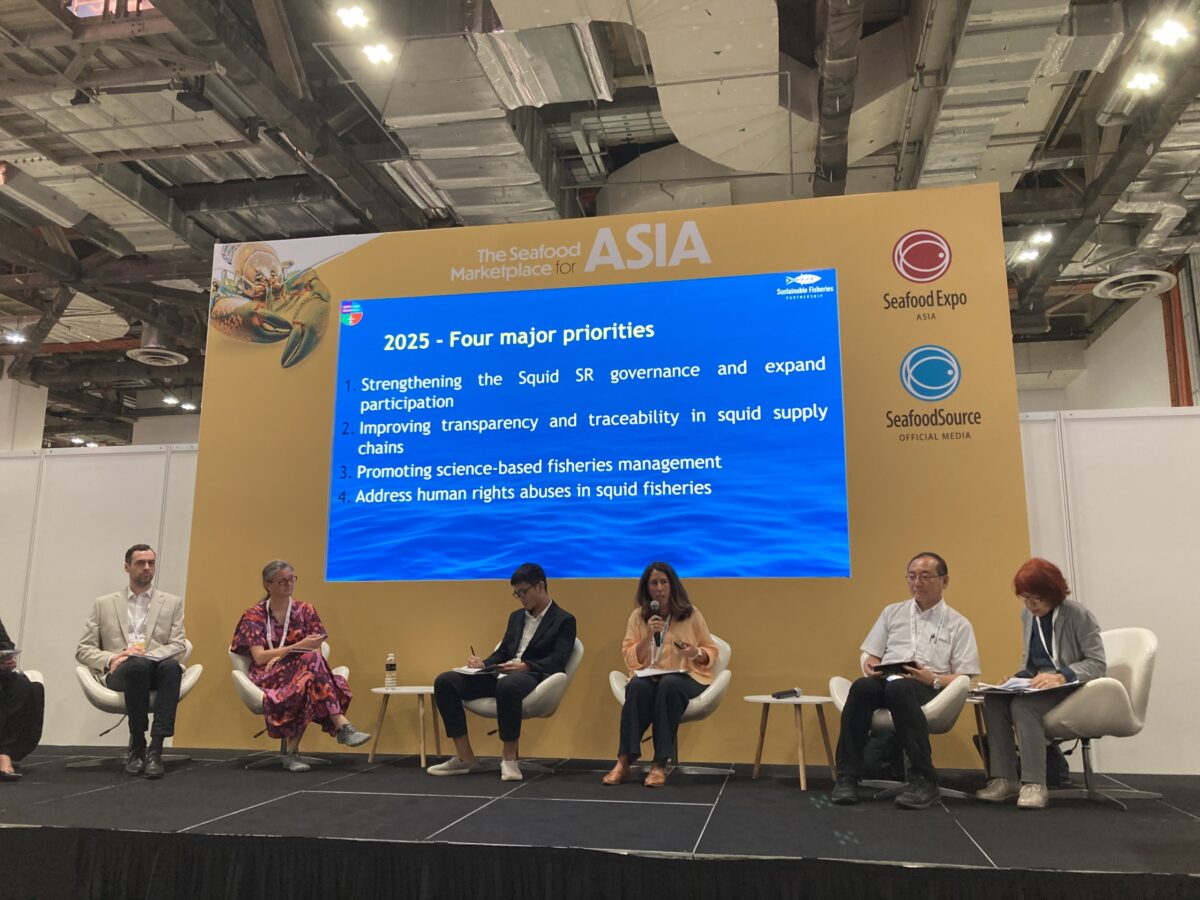As part of the conference program at Seafood Expo Asia 2024, SFP’s Supply Chain Roundtables Director Carmen González-Vallés and Board Chair Cat Dorey participated in a panel session on improving seafood traceability, organized by the IUU Forum Japan and traceability and IUU experts. Audience members included representatives from industry and other NGOs.
González-Vallés focused specifically on the complex squid value chain, which makes it extremely difficult to trace final products. More than half of the world’s squid is harvested from fisheries that are considered unregulated and lack basic management rules. Squid is also highly processed and, in many cases, it is almost impossible to recognize final products without DNA testing.
The Asia region is a key player in the global squid value chain – as importer, processor, and consumer – and traceability is essential to combat IUU fishing.
A key message of the panel was that traceability must improve progressively, and the first step for companies is knowing their supply chains. “It may seem surprising, but some companies do not have a clear understanding of their value chain,” González-Vallés noted. “Yet, they still want to know the name of the ship from which their product comes. This is important, of course, but it is essential to know the entire chain. For example, catch documents must be verifiable, and without collaboration with suppliers, this is impossible.”
SFP’s Global Squid Supply Chain Roundtable (SR) is working to provide training and education to develop procurement policies that include traceability requirements, and to implement due diligence measures and establish long-term relationships with their suppliers to trace squid to its origin. The SR invites any companies in the Asia region who are importing and processing squid to join them to support global efforts toward sustainable fisheries and responsible supply chains.
Additional panelists included:

Cat Dorey (second from left) and Carmen González-Vallés (with microphone) as part of a panel on traceability.
